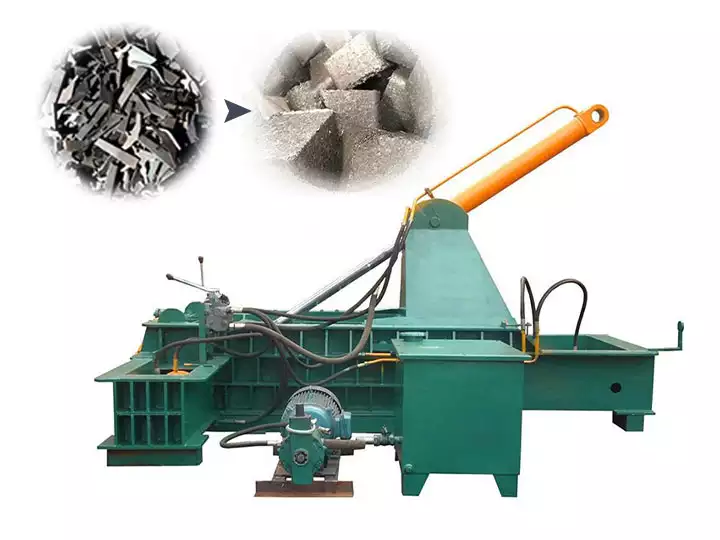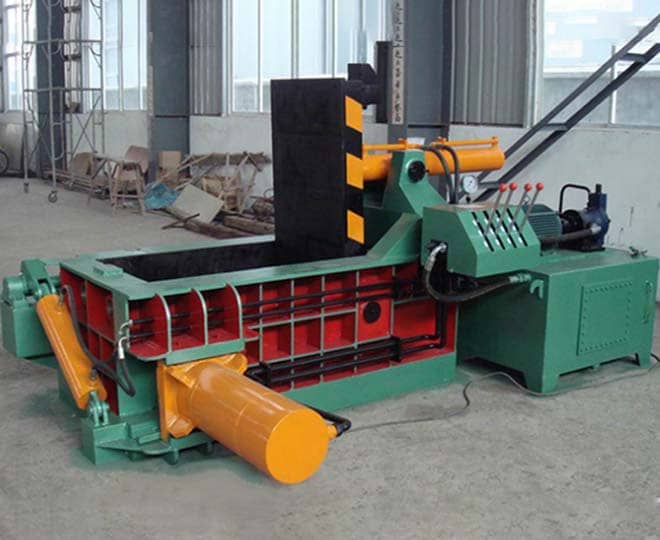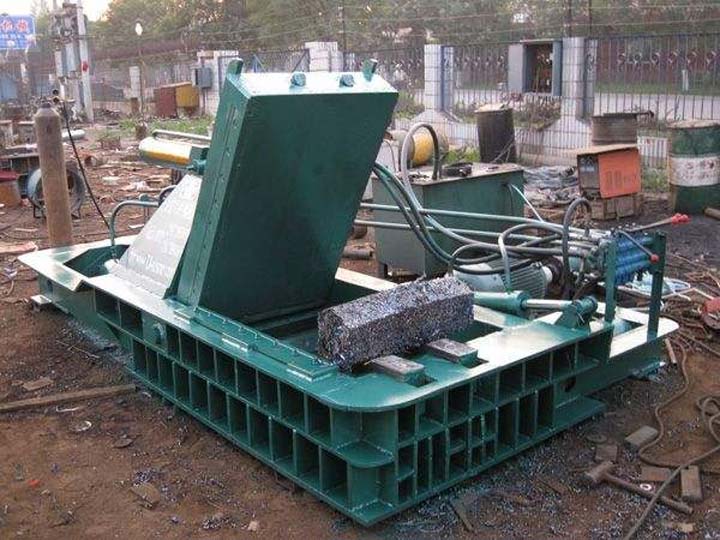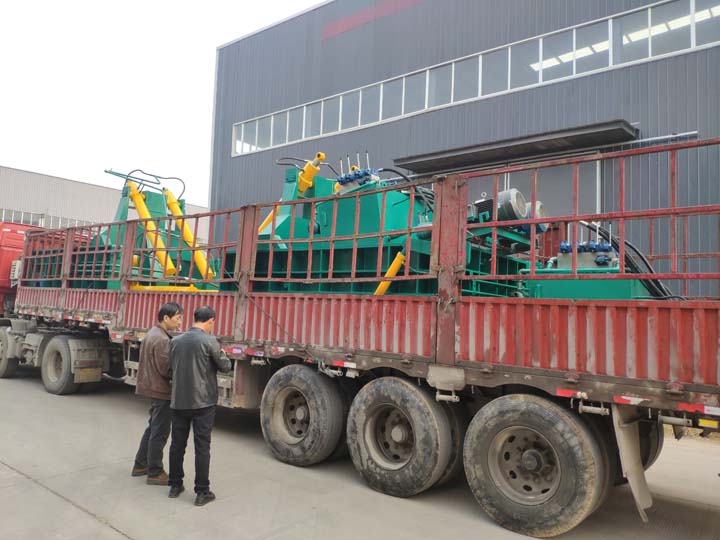Metal baler is a necessity for scrap metal recycling and smelting industry
The metal baler can squeeze various metal scraps into qualified block materials. This kind of metal briquetting equipment is necessary equipment for most scrap metal recycling and processing industries and metal smelting industries.
The hydraulic metal baling machine adopts hydraulic transmission, which has the characteristics of compact structure, simple operation, easy maintenance, and reliable sealing. The scrap metal baler machine can be used to cold press various scrap metal materials, scrap steel, copper, aluminum shavings with a thickness of 3-10 mm or less, disassemble car shells, waste oil drums, scrap steel windows, scrap bicycles, and other scrap metals into blocks.
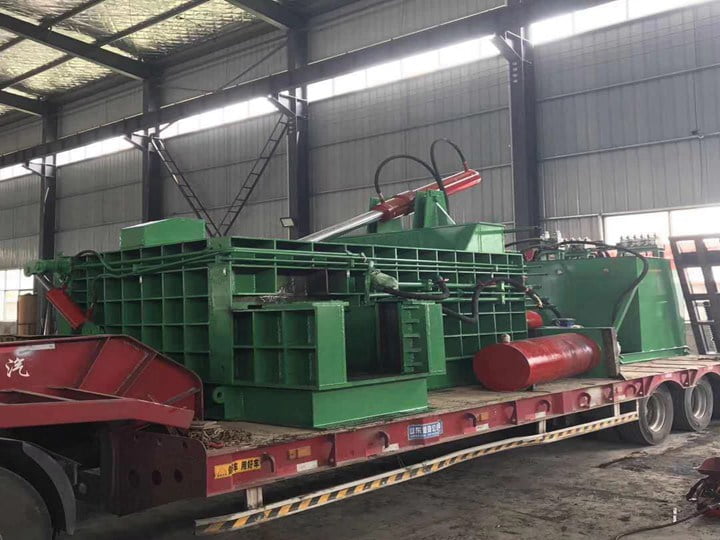
What is the working principle of the metal baler?
The basic principle of the hydraulic metal baler is to use the metal material to produce plastic deformation under the action of external force, and to give the metal material enough external force that can gather and produce permanent deformation, thereby forming a compact bundle.
Therefore, metals that cannot produce a plastic deformation or have very small plastic deformation cannot be directly packaged with a metal baler. Such as high carbon steel, tool steel, wire rope, and cast iron.
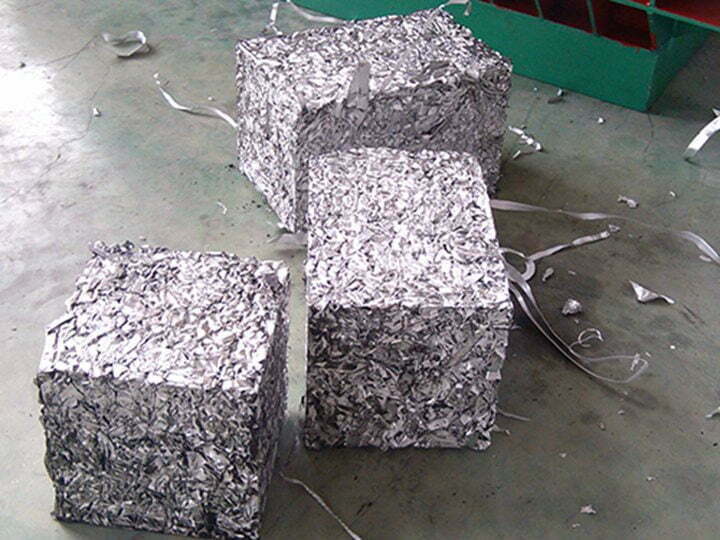
Main functions of the metal baler
Extrusion of scrap metal raw materials
The metal baler can squeeze waste metal raw materials into qualified materials. Waste oil drums, metal scraps, scrap steel, steel shavings, scrap copper, scrap iron, scrap aluminum, disassembled car shells, aluminum shavings, and other waste metal raw materials can be squeezed by a metal baler to make them qualified charge.
Facilitate the recycling of scrap metal materials
The shape of the scrap after extrusion is a cylinder or a rectangular parallelepiped and other different shapes. These metal blocks are convenient for the storage, transportation, and recycling of scrap metal. At present, metal balers are mostly used in the metal smelting industry and recycling processing industry, which greatly improves the efficiency of metal recycling, and promotes resource recovery and environmental protection.

